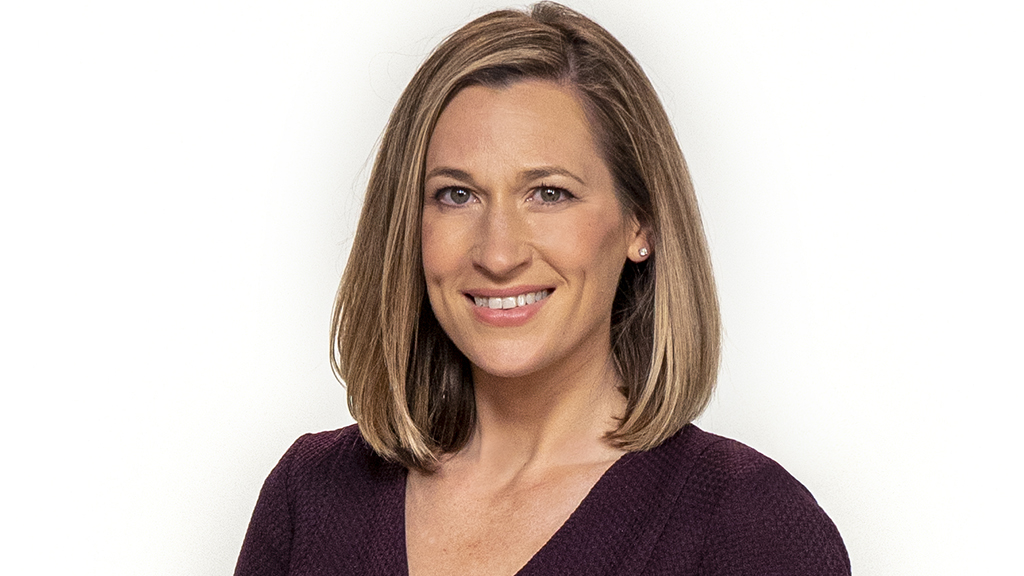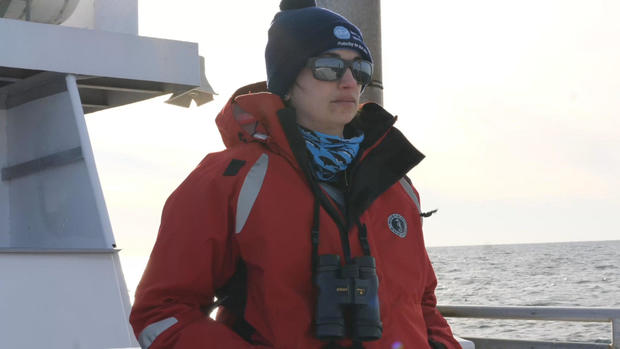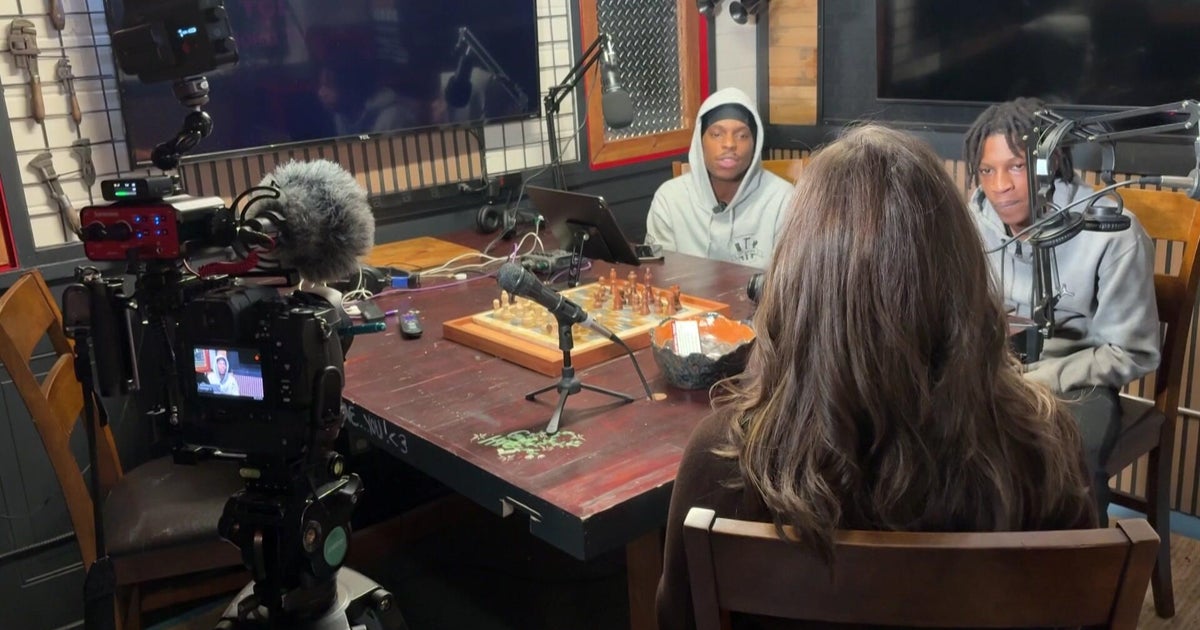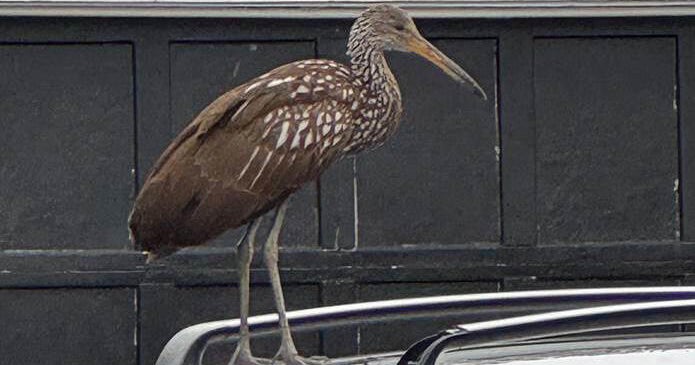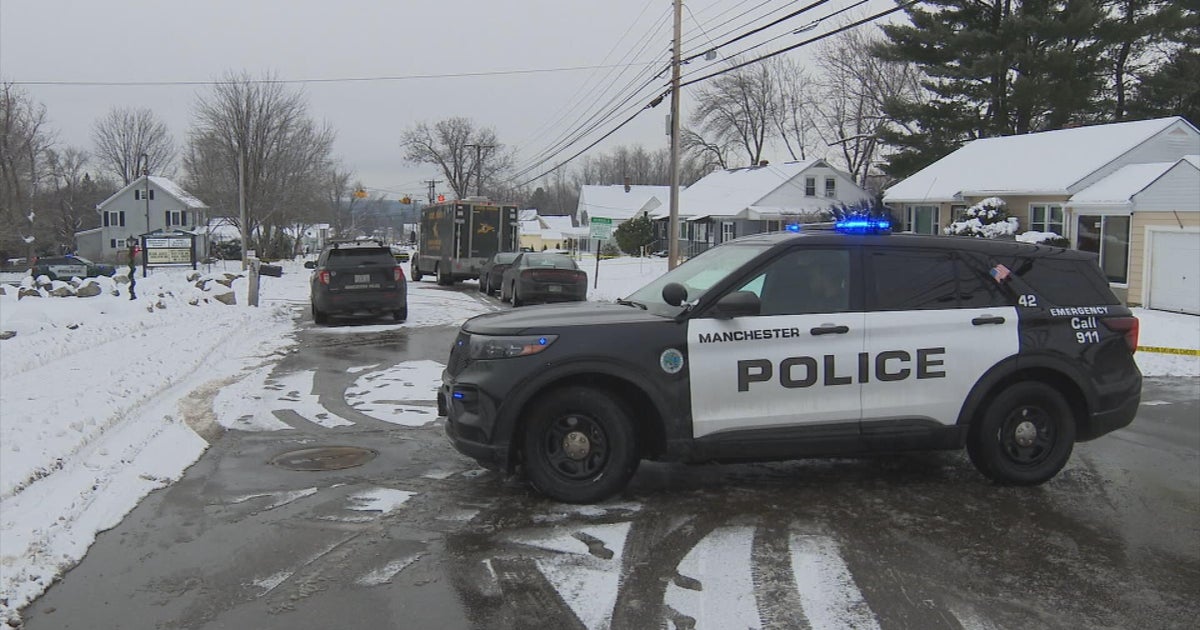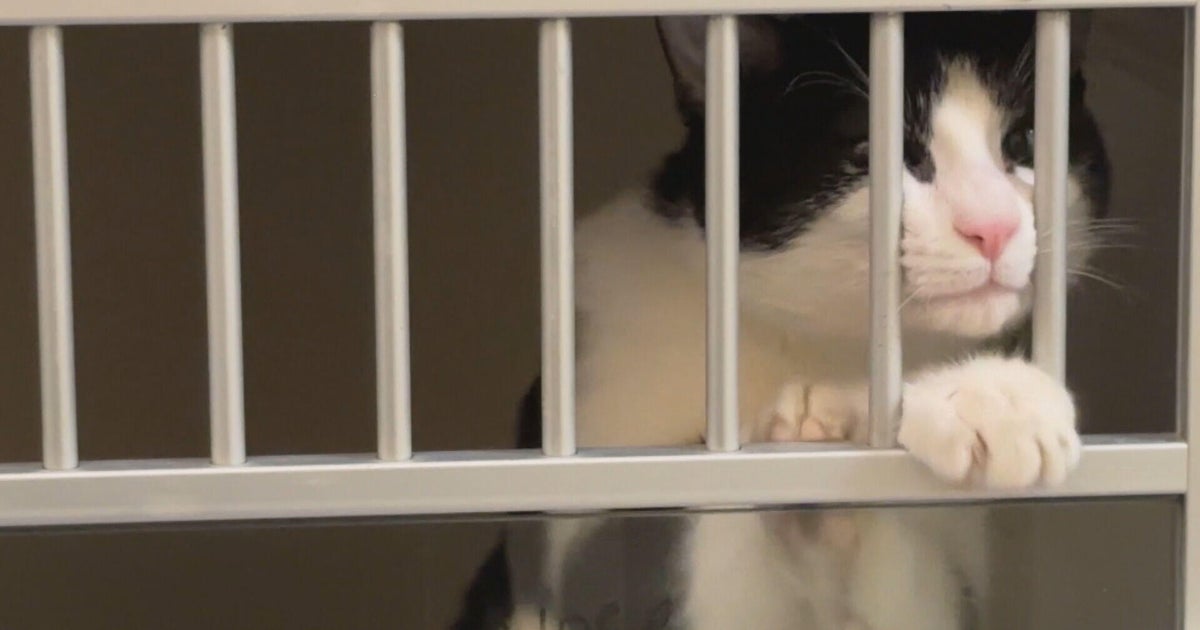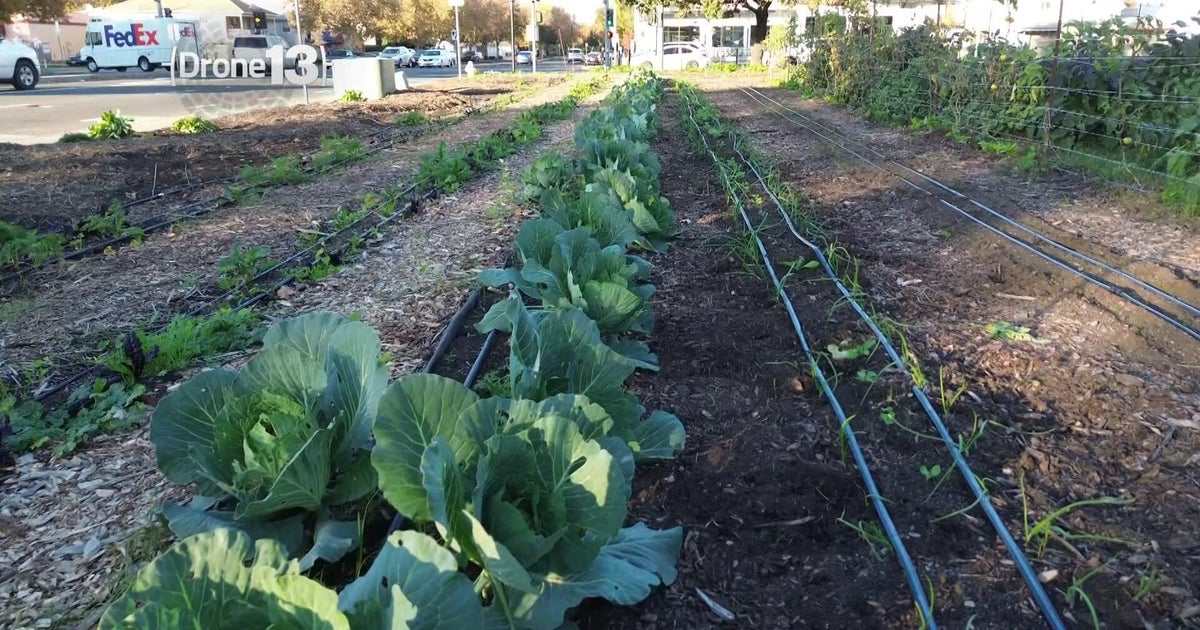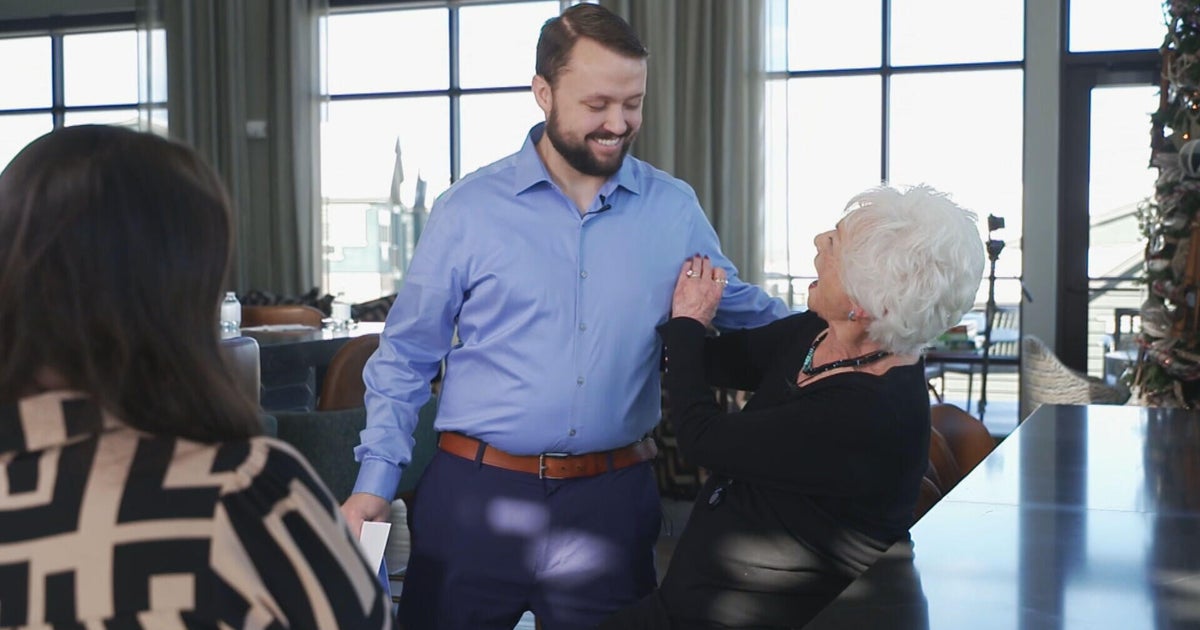Scientist using love of whales to make a difference off New England coast
BOSTON - They are some of the largest, most majestic creatures of the ocean, living just off our coast and if you are lucky enough, you may get a glimpse into their underwater world.
"It never gets old... seeing whales... it doesn't matter what kind," exclaims Amy Warren. She is an assistant research scientist for the Anderson Cabot Center for Ocean Life at the New England Aquarium.
When asked how many whales she's seen in her career so far, her response is not surprising.
"Oh man... a lot...It's probably in the thousands," Warren said.
Growing up on the seacoast of New Hampshire, Amy Warren loved whales for as long as she can remember.
"If anything had to do with whales or dolphins, I wanted it... I wanted to see it, I wanted to have it in my room. I was just enthralled by them," Warren explains.
With that childhood passion, a love for math and science, she didn't travel far from home and went to the University of New Hampshire.
"UNH was known for having a really great Marine Biology program," Warren says.
It wasn't always easy, but she was determined.
"A lot of people were like it's hard, its hard... and I was like... I want to do it," Warren tells WBZ.
While in college it was a summer opportunity that solidified her choice in her career path.
"There was a summer where I did a summer class that was living on an island... off the coast of New Hampshire, the Isles of Shoals... they have a marine lab out there. I lived out there for a month," Warren says.
She finally got to go on her first Whale Watch boat in college and she was hooked and started to work on one.
"I spent three years flipping burgers in the galley of a whale watch boat... but it still got me to where we needed to go," Warren tells WBZ.
After working in the galley, she became a naturalist on a Whale Watch boat, identifying and explaining to passengers the animals and behaviors they would witness on these adventures.
"Seven years of whale watching you see a lot... and I went out almost every day all day, every summer... and then in the winters I would do right whale ariel surveys over the southeast," Warren explains.
From there, her career continued to where she is now.
"I work on the right whale research team... and we study the critically endangered right whale," Warren says. "I enjoy what I do for work, I enjoy showing up to work, especially if I get to go on a boat... and see whales."
While at sea, part of what her research team does is take pictures that become part of a photo identification catalog.
"To date there are over 700 whales in the catalog, those aren't live whales, those are whales that we've ever identified," Warren explains. "They are all individually identifiable by markings that they have on them."
Like my new favorite, Nimbus.
"He has these skin lesions on his head... they are very white and fluffy and look like clouds... so it's pretty easy when you see him with the white lesions, oh it's nimbus," Warren tells WBZ.
Amy has the ability to even identify and name whales on the spot in the water, helpful when collecting valuable DNA Samples and she appreciates each whale's own personality.
"Some are really great attentive moms and others are like... he'll be fine...What I love most is getting to know the whales on an individual level... I can recognize them, I see whales year after year," Warren says.
Like her favorite humpback whale.
"Her name is pinball... she's the same age as me... she's had like eight calves now, I've lost track... She's a really good mom she shows up here in New England every single year, there was never a summer on a whale watch boat I didn't see her... and so that is another reason why she was my favorite humpback whale... I have a lot of favorite right whales; I can't pick a favorite right whale," Warren laughs.
There are about 340 Atlantic Right Whales left, a critically endangered species, although that is a rebound from the whaling days.
"We think they came back from 20 to 30 animals... Back in the days of whaling they were the number one target... they were the 'right' whale to hunt," Warren explains.
Right Whales are very slow, and very large, and when captured they produced a lot of oil, plus they live near the shoreline which is still a reason for concern today.
"That's also where all the boats and all the fishing gear is... Boats have gotten larger and faster. Fishing gear has gotten stronger and more prevalent, they are running into these threats on a daily basis," Warren says.
More reasons to track and monitor this special species.
"Some people can call them the canary in the coal mine, if we lose these whales, it might show us what will happen when we lose other whales, because the threats that theses whales are facing are not unique to right whales. All of our large whales, a lot of other marine animals, are facing the same threats," Warren says.
And whales provide an important role in the marine ecosystem by redistributing nutrients in the ocean.
"They are one with the ecosystem. They are giving back to it as much as they are taking... The more whales we have, the healthier our oceans are going to be," Warren states.
Amy believes if we can lower human interactions, the Atlantic Right Whale population can bounce back.
"We really need to see better regulations in terms of ship speeds and shipping gear. And there are lights at the end of the tunnel; just a lot of it has to do with regulations and money," Warren said. "There's always a need for more funding to make these things happen. Shifting to whale friendly fishing gear is going to cost a lot of money. It's possible, but it's going to be a long road. So, if could make these things happen, I think right whales can make a turn, again they have before."
